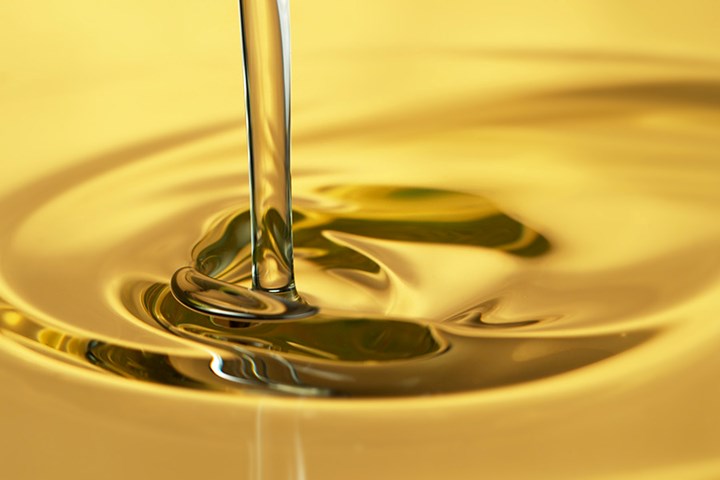Plant-Based Hydraulic Fluids for the Eco-Conscious
If you can’t kick the hydraulic habit, you could try using a more sustainable hydraulic oil.

Nontoxic, biodegrdable, vegetable-oil based hydraulic fluids can perform even better than synthetics. (Photo: Getty Images/Jag_cz)
Should your hydraulic machinery go vegan? Many manufacturers have found all-electric drives to be cleaner, quieter and more sustainable than hydraulics, but many have also found it difficult to quit hydraulics altogether. (Even some “all-electric” injection presses include a small auxiliary power pack to drive ejectors, core pulls and certain other functions.)
Keep in mind that there’s a third way to go: what the EPA calls “Environmentally Acceptable Lubricants (EALs)” based on vegetable oils. Such products have a 15-yr history of use in applications including plastics and metal-cutting CNC machinery, according to Ben Garmier, v.p. of in Hartville, Ohio. His company has multiple customers in those markets, he says, who purchase its Bio-Ultimax 1000 hydraulic fluids through MRO suppliers such as Grainger, Fastenal, MSC and McMaster Carr, as well as directly through the company’s . Plastics-processing users of Bio-Ultimax 1000 include 3M and Avient, says Garmier, and its largest metalworking account is Novelis Aluminum. These products reportedly meet and exceed Federal specifications for machine-tool hydraulic systems.
So why call attention to this now? Garmier explains that more and more manufacturers are setting sustainability goals for themselves, boosting the need for “environmentally friendly” lubricants and the need for awareness of these products.
His company claims that Bio-Ultimax 1000 fluids are nontoxic, free of zinc and heavy metals, and available in several viscosity categories—ISO 32, 46, 68, 100. They are readily biodegradable formulas that perform like mineral-based hydraulic fluids. They boast super-high viscosity index (VI) and “oxidation performance comparable to full synthetics,” and are proven in systems up to 10,000 psi and systems with ultra-fine filtration. They are said to have higher VI than synthetics, improved thermal shear stability and increased low capacity, as well as extremely low volatility, making them safer to use. What’s more, the company’s patented antioxidant stabilization reportedly provides improved oxidation stability over other plant/vegetable/HETG and unsaturated HEES-type fluids. They’re also formulated to provide longer seal life with reduced oil leakage.
Personally, I’ve been a fan of electric servo drives ever since I—and my brand-new suit jacket—were drenched with hydraulic oil from a burst hose during a machinery demonstration years ago. Not sure that I would have felt better knowing that the oil was vegetable-based and biodegradable. And I doubt it would have reduced my dry-cleaning bill for the jacket. But the machine builder (which shall be nameless) that had to clean up afterwards might have saved a bundle in waste-disposal costs.
Related Content
-
How to Extrusion Blow Mold PHA/PLA Blends
You need to pay attention to the inherent characteristics of biopolymers PHA/PLA materials when setting process parameters to realize better and more consistent outcomes.
-
Foam-Core Multilayer Blow Molding: How It’s Done
Learn here how to take advantage of new lightweighting and recycle utilization opportunities in consumer packaging, thanks to a collaboration of leaders in microcellular foaming and multilayer head design.
-
Breaking News From NPE2024
Here is a firsthand report of news in injection molding, extrusion, blow molding and recycling not previously covered.








